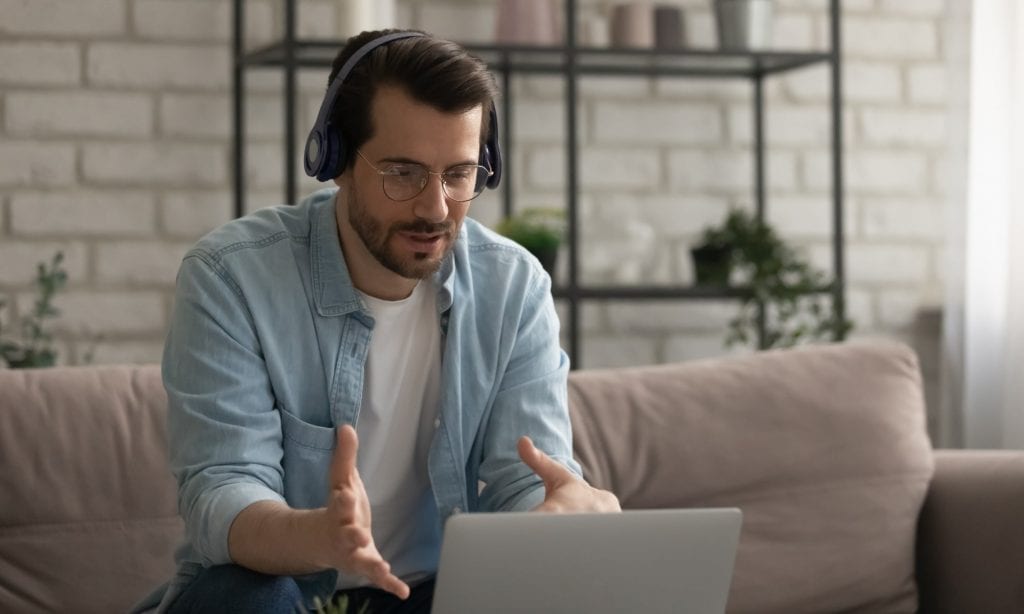The coronavirus pandemic has affected us all. Having entered the new decade with excitement and optimism, who could have envisioned what lay ahead. Covid-19 has left us with an impaired ability to continue our day-to-day routines as usual. It has impacted everything, from our health services, our jobs, our supermarkets, to our loved ones. Now we live with the risk of catching the virus or passing it on, having to abide by ongoing social distancing measures and self-isolation rules. It comes as no surprise that many people are feeling adverse effects on their mental health.
On top of this, due to ongoing Government regulations, many people have found that access to face-to-face health services has been restricted, leaving them confused at who to turn to. For this reason, now more than ever, online therapy sessions are a pivotal point for the wellbeing of our society.
Online therapy can be an excellent, effective and worthwhile support system, particularly at a time in crisis. In this blog post, we will advise how to access and make your transition to online therapy.
Top tips for making the most of online therapy
Put aside a quiet space and intentional time for your therapy
While accessing online therapy in your own home, it is essential for you to try and find a quiet and calm space where you won’t be disturbed. Distractions are not ideal if you want a successful session.
The emotional nature of therapy makes it even more important to have some space and time set aside to engage with this process fully.
Healthline, 2020
If your children are off school, it’s worth asking if your partner, family member or friend can watch them while you’re accessing your online therapy – giving you peace and quiet with minimal distractions. If you are self-isolating with your family or partner, you can ask them to go into another room, wear headphones or play some music while you do your session. Additionally, you could immerse yourself in nature for your appointment if you have mobile data or good Wi-Fi in your home, sitting in a quiet garden or the park will also be a great mood booster!
A fantastic benefit to online therapy is that it is entirely flexible. You can have a counselling session at anytime, anywhere! Therefore, you can schedule in your appointment for the best time to suit you. Wherever you choose to do your therapy, popping in your headphones and muting any phone notifications will ensure you get the most out of your session, taking those vital steps in improving your mental wellbeing.
Treat online therapy as you would a face-to-face appointment
Online therapy might feel slightly strange in the beginning. It is easy to think that some discomfort is a sign that it is not right for you, but don’t fret! It is entirely normal to expect some awkwardness at first. We recommend that you treat your online therapy sessions like regular face-to-face appointments.
Regular advice through the coronavirus outbreak has been to stick to a daily routine (as much as you can anyway), and the same goes to your online therapy sessions. Make sure you’re dressed, awake, and feeling fresh. Simple acts such as having a shower, brushing your teeth and getting out of your pyjamas are a great way to quickly lift your mood.
Furthermore, don’t hold back during your sessions. Many individuals will “grieve” the loss of their in-person support and may struggle to open up. By making any worries or struggles clear to your counsellor, this will allow you to become fully immersed in your session, forgetting about any initial awkwardness and ensuring you get the most out of your appointment.
Humans are social beings – working from home, social distancing and self-isolating are all going against our natural desire to connect. Online therapy is a great way to establish more human contact and stay connected to the outside world, naturally boosting your mood and wellbeing.
Utilise the internet and social media platforms constructively
As mentioned above, connecting online is a fantastic way to stay connected to the outside world, which can naturally boost your mood. As well as accessing online therapy, there are many other online platforms that you can use constructively to stay connected.
With the closure of gyms, leisure centres and yoga studies, many people are now tuning in to online exercises classes instead. There are thousands of free classes on the internet – both live and pre-recorded – that are an effective way to stay active and improve your mood. From aerobics classes that you can enjoy with the whole family, to tranquil online yoga classes to help relax and keep anxiety at bay.
In the ever-evolving digital landscape, there are many ways you can keep in touch with your friends and family. The use of social media platforms has risen substantially in recent months, while many are utilising all that Facebook, Zoom and Skype have to offer, from running quizzes to having virtual coffee and dinner dates.
While the internet and social media platforms can be a lifeline in these uncertain times, it is worth mentioning that certain types of internet usage can also make you feel worse. The constant stream of online news, speculation and outlandish conspiracy theories can drag you down. If you feel that the continuous bombardment of coronavirus chatter is getting on top of you, it’s a good idea to limit unhelpful social media scrolling and regular news checks.
By committing your time and mental energy to only beneficial activities, such as online therapy, taking part in exercise, and keeping in touch with your friends and family, you will be able to protect and improve your wellbeing throughout this year and beyond.
If you feel the coronavirus pandemic is taking its toll on your mental health, or you just want a little extra support through day-to-day life, I am here to help. Get in touch today for your free 30 minute initial consultation, and see if online therapy or telephone counselling is right for you.



